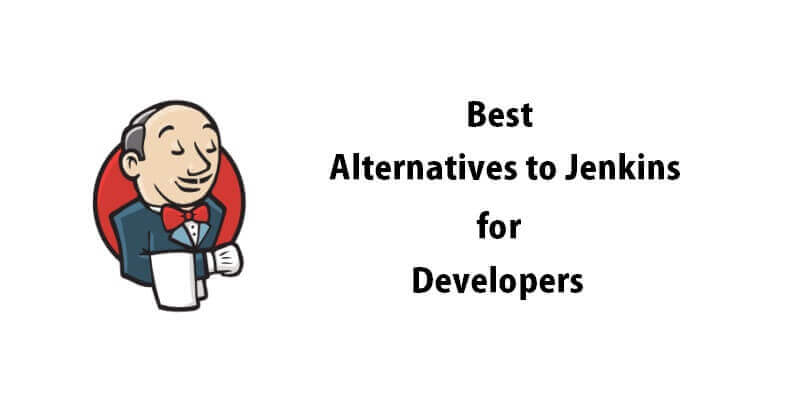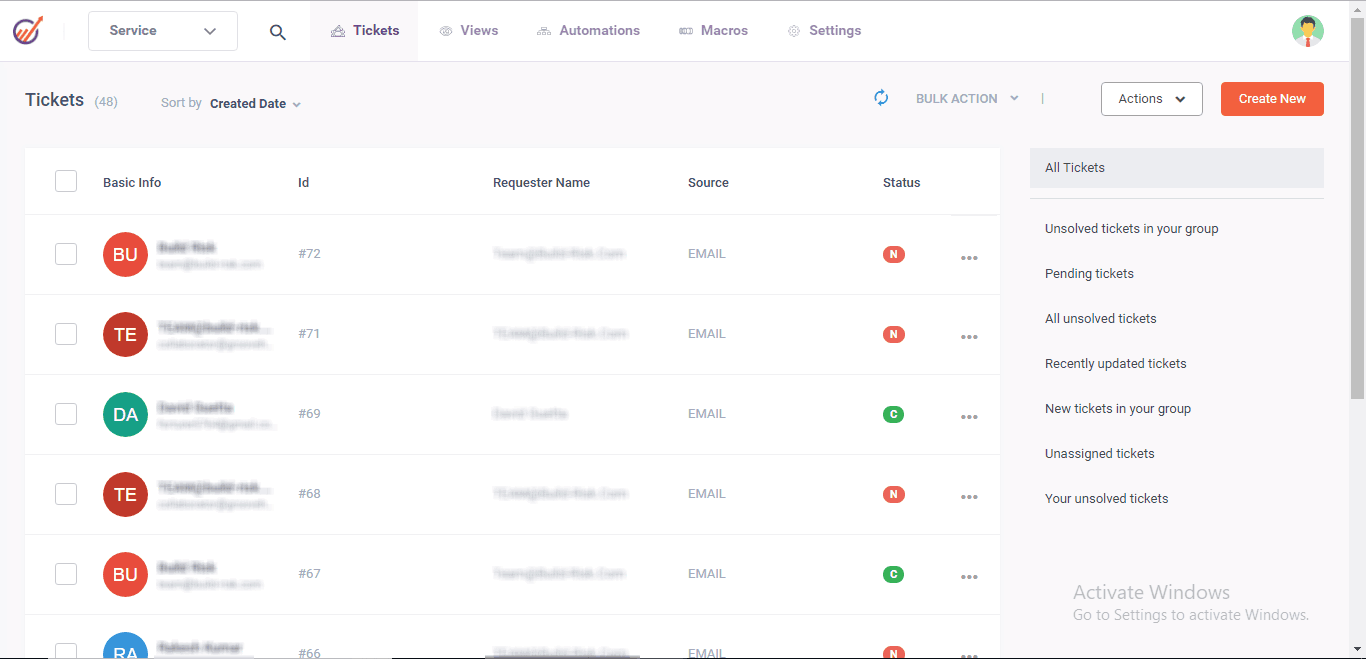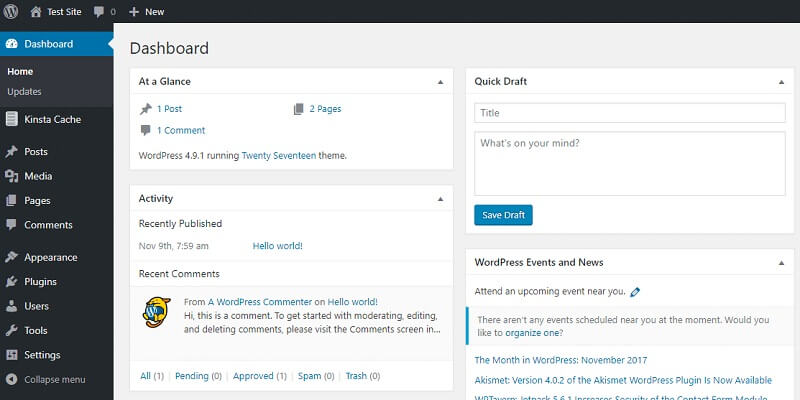Explore the best alternatives to Jenkins for developers. Enhance your development workflow with these efficient tools. Choose the right solution for your team’s needs.
We are all too acquainted with Jenkins, a CI/CD tool. It has been a well-liked option for continuous integration and development among Java developers. It is a powerful tool for project development and testing, making continuous integration simple. And also, it is an open-source utility with other plugin options as well. For developers exploring related learning resources, especially those interested in front-end technologies, exploring free JavaScript books can be a great way to complement their understanding of modern development workflows alongside Jenkins.
For those looking to enhance their skills in DevOps, there are numerous training options available; including DevOps certification, which can further augment one’s proficiency in tools like Jenkins and broaden their understanding of continuous integration and deployment practices. Similarly, understanding the key skills to master as a website designer can help professionals build a well-rounded technical foundation that complements their DevOps expertise and overall development capabilities.
While Jenkins offers powerful automation capabilities, including automation testing, other CI/CD tools are available besides Jenkins. You have a lot of possibilities so you can choose an alternative to Jenkins!
The challenge is how you choose the best Jenkins substitute out of so many options. To facilitate your decision-making process; we have compiled a list of a few top alternatives to Jenkins. Read on to find out more about them.
Best Alternatives to Jenkins:
Atlassian Bamboo
Bamboo, an Atlassian product, is an effective tool for continuous integration, development, and deployment. It easily connects with JIRA to update issues, commit changes, and connect test results for end-to-end visibility within the team. In a similar way, platforms like Whimsical – Unite teams, tasks, and tools in one place – help streamline collaboration and improve workflow efficiency; ensuring every team member stays aligned throughout the development process.
Bamboo has several important qualities:
- Parallel Batch Testing: This feature expedites development processes by enabling users to run batch tests concurrently, increasing efficiency.
- Seamless connection: By facilitating simple interaction with popular tools like BitBucket, Fisheye, and JIRA, Bamboo’s seamless connection features streamline workflow management and communication.
- Ease of Setup: Teams can rapidly start with Bamboo without facing many technical challenges thanks to its user-friendly interface and intuitive configuration options.
TeamCity
Due to its simplicity of usage and integration; it is often referred to as the “Intelligent CI Server.” It provides installation packages for various operating systems. This robust tool from JetBrains keeps the code clean by enabling tests to be built and executed before changes are committed. Similarly, just as developers seek the best clean WordPress themes to maintain a streamlined and efficient website design, tools like this ensure codebases remain organized, optimized, and error-free.
TeamCity distinguishes itself from Jenkins through various standout features:
- Easy Installation and Detailed Documentation: TeamCity offers customers an easy-to-follow installation procedure with a wealth of documentation; guaranteeing that users can easily set up and utilize the platform.
- Smooth Tool Integration: Thanks to its robust integration features, TeamCity easily integrates with many tools, such as Docker and JIRA, to improve teamwork and workflow efficiency across projects.
- Extensible APIs: TeamCity’s simple and scalable APIs foster flexible and scalable project management and automation. It enables developers to adapt and expand the platform to meet their needs.
CircleCI
CircleCI is an adaptable tool that requires little upkeep and works in nearly any setting. Builds are automatically executed upon commit. In addition, any build that is queued or in progress is automatically aborted if a new build is initiated. As automation continues to shape various industries; including the future of marketing AI and automation, tools like CircleCI demonstrate how intelligent systems can streamline processes and enhance overall efficiency.
CircleCI presents a range of noteworthy attributes:
- Seamless Integration with Version Control Platforms: CircleCI seamlessly integrates with Bitbucket, GitHub Enterprise, and GitHub, facilitating smooth collaboration and version control management within the development workflow.
- Parallel Test Execution: By distributing tests across multiple containers, CircleCI significantly reduces build time, enhancing overall development efficiency and enabling faster feedback cycles.
- SSH Support: With CircleCI’s support for SSH, users can safely access virtual computers and run commands, giving them more freedom and control over the development environment.
- Automatic Upgrades for Simpler Maintenance: CircleCI reduces the need for manual intervention and streamlines the maintenance process by automating upgrades, guaranteeing that the platform is always updated with the newest features and improvements.
GitLab
A component of GitLab, GitLab is a potent CI/CD tool that can replace Jenkins. You may utilize this open-source web interface without requiring additional software to incorporate continuous processes like integration, delivery, and deployment into your project. It offers distributed version control services and an easy-to-use interface. Much like the principles outlined in front end development a comprehensive guide to building modern web interfaces, GitLab emphasizes efficiency, collaboration, and seamless integration to create a smooth development experience.
GitLab stands out from Jenkins with several notable features:
- Open-Source Nature: GitLab is an open-source technology that offers flexibility and transparency in software development and continuous integration processes, much like Jenkins.
- Concurrent Testing for Time Efficiency: GitLab streamlines build procedures by permitting concurrent testing, which helps developers produce high-quality software more quickly and save significant time.
- Release and Application Delivery Automation with Docker Integration: GitLab excels in automating release and application delivery processes, seamlessly integrating with Docker for efficient containerization and deployment, streamlining the DevOps pipeline.
BuildMaster
One of the greatest Jenkins substitutes that provides continuous integration across various platforms is BuildMaster by Inedo. You can easily manage your apps and release them to the environment with BuildMaster. Moreover, setting up the pipelines doesn’t require a high level of experience. In addition to managing deployments efficiently; developers should also follow best practices such as learning key tips to secure your VPS hosting environment to ensure that their applications and infrastructure remain safe throughout the CI/CD process.
BuildMaster boasts several noteworthy attributes:
- BuildMaster provides self-managing release management platforms that enable teams to automate and optimize the release process, decreasing the need for manual intervention and increasing productivity.
- And also, BuildMaster uses automatic gates to prevent the release of untested software; guaranteeing that only extensively examined and verified builds are made available for use. This approach improves the dependability and stability of software releases.
Spinnaker
Netflix created the open-source Spinnaker technology for continuous delivery. It integrates with major cloud providers and is relatively strong. Numerous hosting technologies; including Docker and Kubernetes, are supported. It is helpful for methods that emphasize the cloud. For professionals interested in mastering similar technologies, exploring the best cloud computing courses can provide deeper insights into cloud-native deployment strategies and tools like Spinnaker.
Spinnaker showcases several standout characteristics:
- Sturdy and Adaptable Pipeline Management: Spinnaker offers a sturdy and flexible pipeline management solution with possibilities for customization and flexibility to suit the many requirements of contemporary software delivery workflows.
- Complete Cloud Service Provider Integration: Spinnaker provides smooth integration with top cloud service providers; such as Google Cloud Platform, Microsoft Azure, Oracle Cloud, and AWS, allowing users to efficiently and easily deploy and manage apps across multiple cloud environments.
UrbanCode
UrbanCode, a continuous integration tool from IBM, offers several capabilities, including visibility, traceability, and auditing, in one convenient package. Thanks to it, you can deliver applications more quickly. You may easily and error-free deploy apps to data centers, clouds, or virtual environments, regardless of the environment. Understanding the benefits of data backup and business continuity is equally important; as it ensures that these deployments remain secure, resilient, and uninterrupted even in the face of unexpected disruptions.
UrbanCode distinguishes itself from Jenkins through several notable qualities:
- Deployment mistakes are reduced: UrbanCode is excellent at reducing deployment errors. It offers solid methods and automation to guarantee error-free and seamless application deployments; improving the software delivery process’s dependability and stability.
- Simple Drag-and-Drop Editor: UrbanCode’s drag-and-drop editor makes it easier to use by reducing the amount of scripting or manual labor required to develop and configure deployment processes. It enhances user experience and productivity overall.
- Enhanced Application Delivery Frequency: UrbanCode enables enterprises to provide applications more often; speeding up software update iterations and release cycles. It accelerates time to market and improves competitive advantage.
Drone
For busy development teams, Drone is regarded as one of the top Jenkins substitutes for integration and deployment. It is an ongoing platform for self-service integration and delivery. You can personalize a variety of features when using it. Bitbucket, GitHub Enterprise, GitLab, and GitHub are all simply integrated with it.
Drone stands out for several exceptional attributes:
- Cross-Platform Compatibility and Language Support: Drone offers versatility and compatibility across a range of development environments by integrating smoothly with a number of operating systems and programming languages.
- Vast Plugin Ecosystem for Pre-Configured Steps: Drone’s extensive plugins for pre-configured steps make it simple for customers to add new functionality and automate repetitive processes in their pipelines for continuous integration and delivery.
- Isolated Build Execution in Separate Containers: Each build in Drone is executed within its isolated container; ensuring independence and consistency in the build process, enhancing security and reproducibility of results.
- Efficient Auto-Scaling with a Single Binary File: Drone simplifies deployment and scaling using a single binary file; enabling auto-scaling capabilities that adapt dynamically to workload demands; optimizing resource utilization and performance.
CodePipeline
With AWS CodePipeline, a continuous integration and delivery solution; update release pipeline automation is made easy and rapid. Every time you change the code, Amazon CodePipeline generates, tests, and launches your application. It is also simple to integrate with GitHub.
CodePipeline is an excellent substitute for Jenkins because it has several appealing features:
- Model of Pay-As-You-Go: With its “pay for what you use” business approach, CodePipeline does away with up-front costs and the requirement to set aside money.
- Customizable Release Methodology: CodePipeline provides a flexible methodology that users can tailor to their specific release phases and workflows. This customization capability allows for the seamless integration of CI/CD processes into existing development practices; promoting adaptability and efficiency.
- Parallel Execution for Accelerated Workflows: CodePipeline supports parallel execution of pipeline stages, enabling concurrent processing of tasks and reducing overall build times. This feature enhances workflow efficiency, allowing faster feedback cycles and improved time-to-market for software releases.
CruiseControl
As a continuous integration platform, CruiseControl offers an extensible framework for building unique build processes. Despite being designed in Java, one may utilize it in various projects thanks to the builders it provides. It can interface with several source control platforms. For developers aiming to improve code quality, exploring the best unit testing frameworks alongside CruiseControl can help ensure reliable builds and robust software performance.
CruiseControl serves several vital functions, including:
- Remote Management Support: CruiseControl assists with remote management, enabling users to monitor and control builds efficiently from remote locations.
- Multi-Project Building on a Single Server: CruiseControl allows for simultaneously building multiple projects on a single server. This capability optimizes resource utilization and simplifies management, streamlining the CI/CD process for organizations with diverse project portfolios.
- Notification via Email and Messaging: CruiseControl notifies users of build statuses and updates through email and messaging channels. This feature ensures timely communication of important information, facilitating collaboration and keeping stakeholders informed throughout the development lifecycle.
Integrity: Alternatives to Jenkins
When a commit is made, Integrity, a continuous integration server; compiles your code and executes your tests. After that, a report is created and shared with the team or users. It can be mirrored with other SCMs, but its only restriction is that one can only use it with GitHub.
Integrity boasts several noteworthy attributes:
- Compatibility with a Range of Notification Systems: Integrity works in unison with a range of notification systems, giving users the flexibility to tailor and expedite their notification processes to suit their needs and preferences.
- Support for Public and Private GitHub Repositories: Integrity is compatible with both private and public GitHub repositories, giving teams who work with a variety of projects and repositories flexibility and ease.
FAQ’s: Alternatives to Jenkins
What are the best alternatives to Jenkins for CI/CD?
Many great tools can be used instead of Jenkins. These include Bamboo, TeamCity, CircleCI, GitLab, BuildMaster, Spinnaker, UrbanCode, Drone, CodePipeline, CruiseControl, and Integrity. Each has its own features, like cloud integration, automatic tests, parallel builds, and easy release, that make the team more productive and make the process of continuous integration and delivery easier. Additionally, understanding the benefits of drones and drone technology highlights how innovative tools—like Drone for CI/CD—can optimize workflows, improve efficiency, and support modern development practices.
Why should I consider using a Jenkins alternative?
Other options may be easier to set up, faster to configure, more scalable, or better at supporting the cloud than Jenkins. In order to deliver high-quality software faster and improve continuous development and release processes; it is important to choose the right tool that cuts down on manual work, speeds up workflow, and gives you access to features that are specific to your team’s needs. Selecting the appropriate platform is especially crucial for the development of web based applications, ensuring efficiency, reliability, and streamlined deployment throughout the project lifecycle.
Can Jenkins alternatives integrate with existing development tools?
Yes, GitHub, Bitbucket, Jira, Docker, and Kubernetes can all be used with most options to Jenkins, such as Bamboo, TeamCity, CircleCI, and GitLab. These connections make version control, automatic testing, release, and project tracking run smoothly. Teams can keep working the way they normally do while CI/CD runs more smoothly and people work together better. For those managing shipments and deliveries alongside their projects, resources like the YunExpress Tracking Guide, How It Works and What to Expect, can help teams stay informed about logistics and ensure timely operations.
Are there cloud-focused CI/CD alternatives to Jenkins?
Tools like Spinnaker and AWS CodePipeline are great options to Jenkins that focus on the cloud. They work with Docker, AWS, Azure, and Google Cloud; making deployment easy and allowing for scalable infrastructure control and continuous delivery. These platforms are great for development teams that use cloud technologies to launch apps in an open and quick way.
How do I choose the right Jenkins alternative for my team?
Ease of use, tool integration, cloud support, and automation capabilities are other considerations to use in selecting the best alternative. Take into account project size, teamwork, and introduction demands. Trial versions or demos can be used to determine which platform creates a better fit, promotes high-quality development, and meets long-term DevOps objectives on behalf of your team.
Conclusion: Alternatives to Jenkins
This blog post explored more than ten compelling alternatives to Jenkins, each with unique strengths. From the user-friendly interface of Bamboo to the cloud-centric focus of Spinnaker; there’s a solution to fit every development workflow. Similarly, understanding how to make a user-friendly ecommerce web design can help businesses create seamless online shopping experiences that complement robust backend development tools.
Here’s a quick recap to help you navigate your decision:
- Prioritize ease of use? Consider Bamboo, TeamCity, or GitLab.
- Looking for extensive cloud integration? Spinnaker or AWS CodePipeline might be ideal.
- Need flexibility and customization? Drone or CruiseControl could be strong contenders.
The best course of action is thoroughly assessing your team’s development environment and unique needs. Before deciding, don’t be afraid to take advantage of the free samples or demos many of these tools offer to get a feel for the product.
Additionally, integrating specialized testing platforms like LambdaTest can further enhance the efficacy of your CI/CD workflow. It ensures comprehensive browser compatibility testing. Keep in mind that the ideal CI/CD platform should enable your team to produce high-quality software more quickly and effectively in addition to streamlining your development process.



